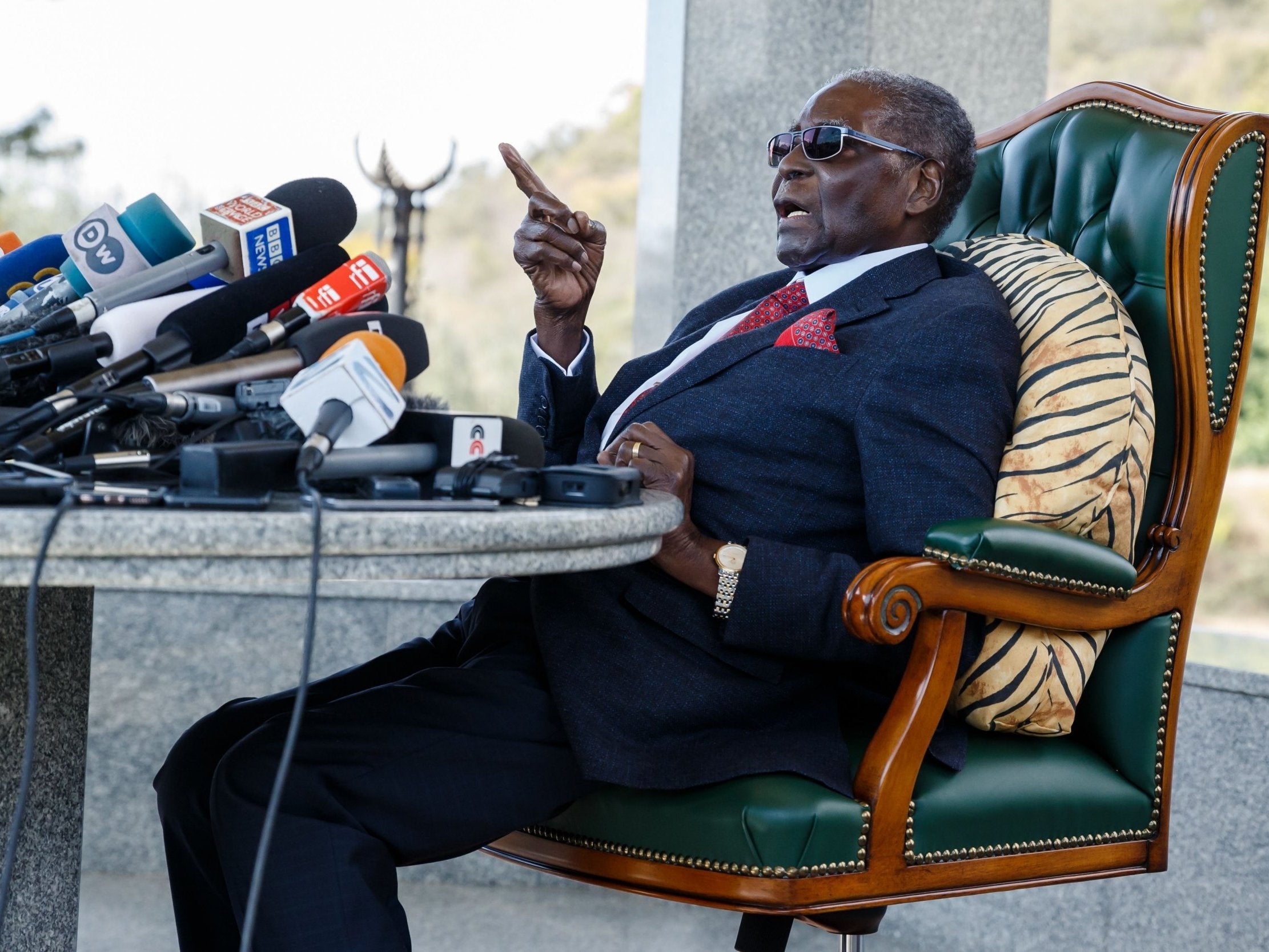Robert Mugabe’s downfall has left deep fractures in the society of Zimbabwe
Zimbabwe 2017: The downfall of a liberator turned tyrant marked a historic moment for the burgeoning democracy, writes Kim Sengupta

The final chapter in the story of Robert Mugabe did not follow the pattern of the downfall of other strongmen I have covered in recent years. The departures of Muammar Gaddafi, of Zine el-Abidine Ben Ali in Tunisia, which was the start of the Arab Spring, and Viktor Yanukovych in Ukraine had taken place after an uprising, a period of violence of varying duration, then a sudden and, in the case of the Libyan leader, brutal ending.
The decline and fall of Zimbabwe’s president was a slow-burn, a prolonged affair. The outcome was inevitable, but it was one played out with those who deposed him going through a supposed adherence to the laws and customs and traditions, national and tribal, of the country.
Mugabe’s overthrow, his life under semi-captivity, and then his death at the age of 95 removed from the international stage one of its most well known leaders, a man who led his country to freedom from British colonial rule, and became a respected inspiration to a generation of revolutionary political activists in Africa.
Subscribe to Independent Premium to bookmark this article
Want to bookmark your favourite articles and stories to read or reference later? Start your Independent Premium subscription today.
Join our commenting forum
Join thought-provoking conversations, follow other Independent readers and see their replies